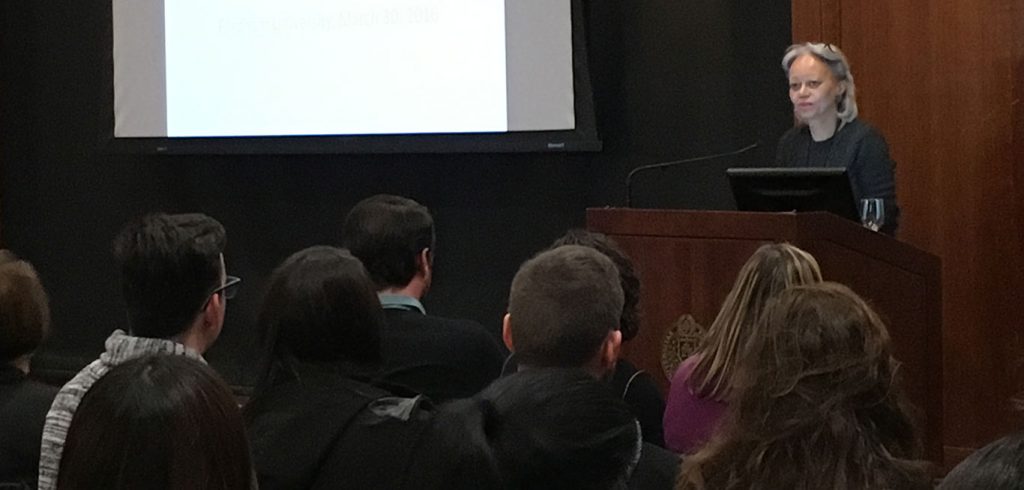Bressler, whose research is in 18th-century British and transatlantic literature, was unsettled by the way the conversation unfolded.
“I found myself without the tools to talk about the subject in a way that didn’t show my side, if you will. I wasn’t as good of a pedagogue as I should have been,” she said.
The moment inspired Bressler to want to answer the question “How do I talk about social injustice but make sure that all sides feel like they’re being heard?”
Bressler, vice president of the Graduate Student Association (GSA), and Peter Murray III, a fellow English doctoral student and president of the GSA, decided to form the Fordham Interdisciplinary Lab on Racial Justice.
The lab, which is supported financially by GSA and GSAS Futures, is a hub where members of the Fordham community from different departments and programs can come together and work on a particular problem facing society.
“Putting this lab together was a way of creating interdisciplinary opportunities at the graduate level without asking more of our professors’ time,” Bressler said. “It’s something that we, as liaisons between the graduate school and graduate students, could run and could promote.”
Both Murray and Bressler have had experience with other interdisciplinary labs. Murray had taken a class with Patricia Williams, PhD, the James L. Dohr Professor of Law at Columbia University, through the Institute for Critical Social Inquiry at the New School.
Bressler was already familiar with the Interdisciplinary Humanities Lab at Duke University, and the time seemed right to set one up at Fordham.
In its first year, it had a dozen participants who met every two weeks. This year, with more race-and-justice-related issues in the news, the lab hosted four lectures, including one in March by Williams, who spoke on “The Legislation of Fear: Race, Status, and Mobility in Terrifying Times.”
In addition to Williams, in April the group co-hosted the poet Claudia Rankine, Bianca Williams, PhD, assistant professor of ethnic studies at the University of Colorado at Boulder, and Linda Martin Alcoff, PhD, professor of philosophy at Hunter College.
“As academics and as instructors, how can we address the racial violence we’ve been seeing on campus and cities,” Bressler said. “How can we talk about it with our students, and make sense of it ourselves, with this arsenal that we have of thinking critically and writing well?”
Next year, the group will host two to three events that focus on how environmental concerns play into social injustice and racial injustice, Bressler said.

